Come Back to Me As Lightning
Faith, Doubt, and How Andrea Still Leaves Me Love Notes
The morning I woke up without Andrea in this world, I wrote my first line of poetry in ages:
“Come back to me as lightning,” I pleaded to the page. “A certain snap in the sky.”
The poem, scribbled in a sleep-deprived stupor of grief, went on to list the many forms I want Andrea to return to me in.
Turns out, that’s just about every form imaginable.
All kinds of weather. The entire spectrum of flora and fauna. Flotsam, jetsam. Every shade on the color wheel of emotion: fury and wonder. Creativity and longing. Faith and doubt. Come back to me as Doubt, I wrote.
Visit me as the voice in my head
that says I’m over-interpreting, imagining it all.
Come in the form of losing all my faith
for a single day. Then come back as something
undeniable. Our initials carved into a tree
we’d never seen. My love, I cannot bear
to lose you. Let me find you again
in everything.
But lightning. Lightning was the first thing on the list. The symbol that felt most specific, most signature. The closest thing to Andrea’s autograph.
After all, Andrea authored the book, You Better Be Lightning. [The title derived from the poem “What Love Is” – one of their best.]
And the day they began to die, Colorado—relentlessly sunny Colorado—broke character. Hail battered our twin skylights in a percussion of sound. Was this the sky applauding Andrea? Welcoming them to the heavens with a drumroll?
“Are you doing this, Baby?” I whispered, though it was too late for them to answer. But then it happened: a bright bolt, a flash. A seam ripped open in the sky as if creating a portal, a doorway for Andrea to enter.
While Andrea was a wise sage in countless ways, they were also an emotional tilt-a-whirl. A drama queen in tattered boy clothes. “Tiny Tornado” was one of my many nicknames for them. If my love were to return as weather, of course it would be dynamic. Not damaging—no tsunamis, no earthquakes. But absolutely electric. Striking.
Lightning.
The thing about signs—little valentines from the dead—is that in the retelling, no one seems to react with the same awe you felt receiving them. I’ve been on both sides: a friend’s ecstatic glint as she recounts the song that came on at just the right moment; me nodding, hearing only the echo, not the initial scream.
I worry this kind of astonishment rarely translates outside the present moment. Still, at the risk of the miracle getting muddled in translation, I share this anyway:
This might come as a surprise, but in our bedroom, Andrea and I have an 82-inch flat screen. We always hated the look of televisions—an eyesore, a feng shui nightmare. But we are obsessed with our Samsung Frame TVs. When turned off, they masquerade as framed artwork. And there are thousands of options, from Van Gogh to Basquiat.
Changing the image isn’t hard, but it’s not the kind of thing that happens by accident. Andrea, the handsomest luddite, never learned how. Every piece of art that’s appeared on that screen? Deliberate. Chosen by me. After pushing at least seven buttons, typically more.
Then the other day I went into our bedroom and saw the picture had changed.
It was something I would never choose. Old-timey, masculine. There were sailboats, fishermen, a big lake stretching across the canvas. Stormy. Dark. Brooding.
My mother had been staying with me—helping me microdose the quiet of a house without my love—so I assumed she’d picked it. But she’s a septuagenarian and not exactly a savant with a remote, either.
“Mom, did you choose this picture?” I asked.
“What are you talking about?” she asked back.
Turns out, she hadn’t touched it. Neither had I.
“That’s so weird,” I said. Hope flickered. Desperate, unreasonable hope. I’d heard that spirits travel through electricity—that they play in the wires, chatter in lights, hitch rides on radio waves.
“Maybe it was Andrea,” I said. Of course I wanted it to be a sign. Of course I was searching. Overinterpreting. Brimming with faith and doubt.
I looked up the artist and title, praying for some hidden message. The painting was called Approaching Thunderstorm by Martin Johnson Heade. Oil on canvas. 1800s. Currently on display in the Met. Seemingly no connection. No significance. No secret code.
My hope was snuffed out like a light. There was nothing special about this random act of technology. A meaningless glitch.
The house felt gutted again. Silence seemed to pool, thick and heavy. I was about to exit the room and continue on with the chore of living, when I saw it…in the top left corner of the painting, so subtly rendered one could definitely miss it, but absolutely there:
A bolt of lightning.
A certain snap in the sky.
“Oh my god!” I shouted, beckoning my mother back. I pointed at the jagged miracle of white paint etched into the landscape.
I told her the story of my poem, We laughed. We cried. I was struck. A jolt of electricity coursed through my body, illuminating all my darkness.
“Gibby!” I kept shouting. “Gibby! Whoa!”
Suddenly, I didn’t feel like a widow. My love was in the house again. Alive, alive, alive. What was this I was experiencing? Actual delight?
The delight wasn’t unfamiliar: I’d feel it when Andrea rattled off a particularly clever zinger or wrote something undeniably brilliant. I was impressed, proud of them. Honored to be the first ears and eyes on the brilliance that spilled forth from them so casually.
And Andrea had this particular way, this look, when they were proud of themselves, too—a coy, confident, tickled air. A shy smirk. Even Andrea was not immune to their own radiant charm.
And I felt that presence in the house again. The sense that they were impressed with the creative way they returned—their ethereal love letter. That they didn’t even need a physical body to flirt like a champion. That they answered my poem with a painting. How fitting. How us.
Of course this is how we communicate now, I thought. Art.
The rest of that evening I waltzed around the house with a smile. A song in my step. Like someone newly in love. Doing dishes was a joy. It was as if I could feel Andrea’s arms wrap around my waist as my hands were deep in the soapy water, whispering, “Did you see what I did back there?”
Yes.
“That was really good, Baby,” I said into the ether.
The sink above the window was open. The wind in my hair felt like Andrea’s fingers. Wasn’t it? Wasn’t that my love laughing into my ear, “And aren’t you also impressed that I finally figured out how to work the TV?”
In the days since, I’ve been desperate for the picture in The Frame to change again. For Andrea to curate a different beauty for me to wake up to every day. For constant communication. I guess what that translates to is: I just want them to still be alive.
I know they can’t perform this miracle on command. I know. I don’t want to be greedy.
But maybe this is the miracle: that they are returning to me, as I asked, in everything. That the world itself has become a gallery they are building for me. That every time I look up and notice something spectacular, I can imagine it was their hand nudging my chin—a gesture saying, Look here, Baby. You’ll love this.
Thank you for listening. I hope it translates.
LOVE 🖤,
Meg [+ Andrea, forever].
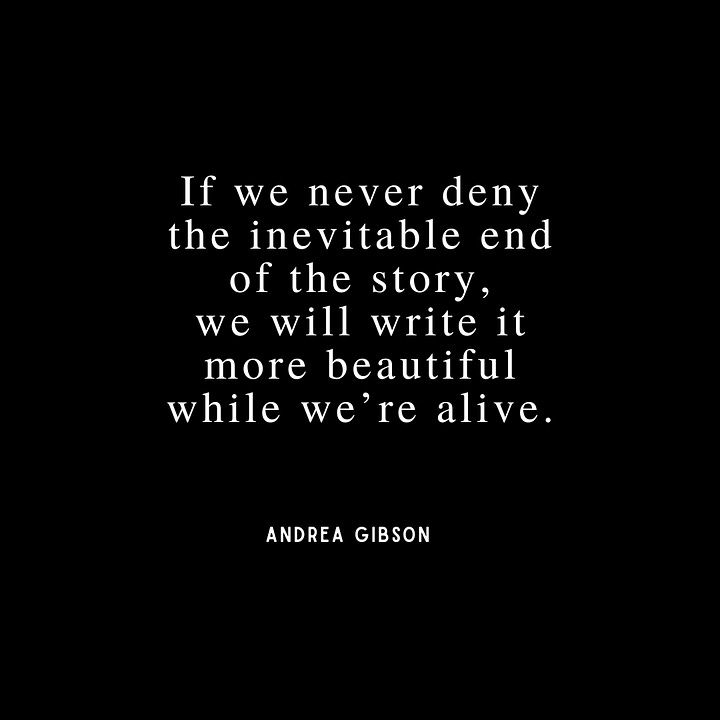
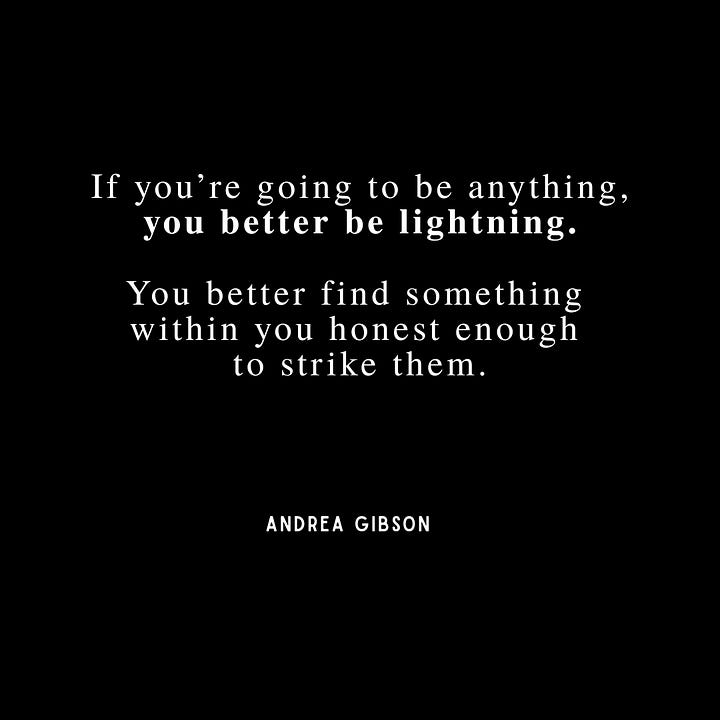
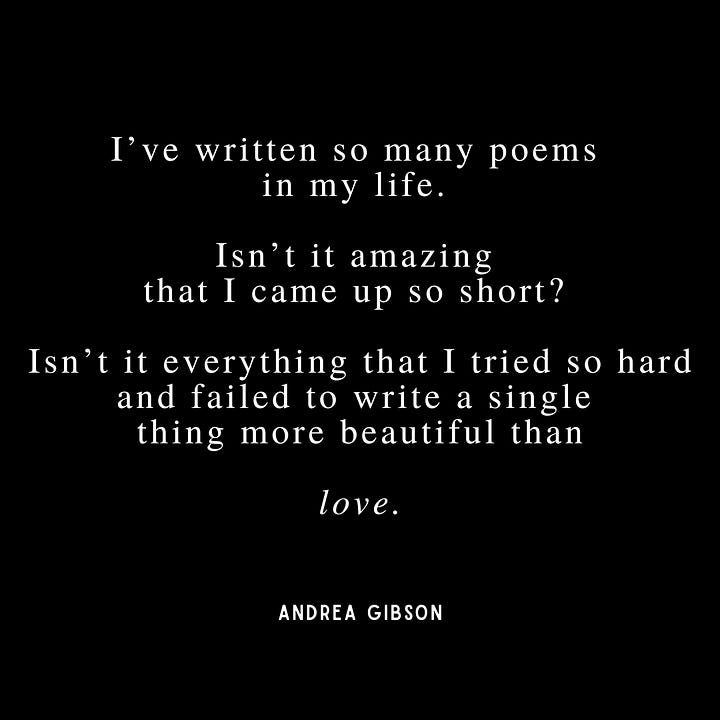
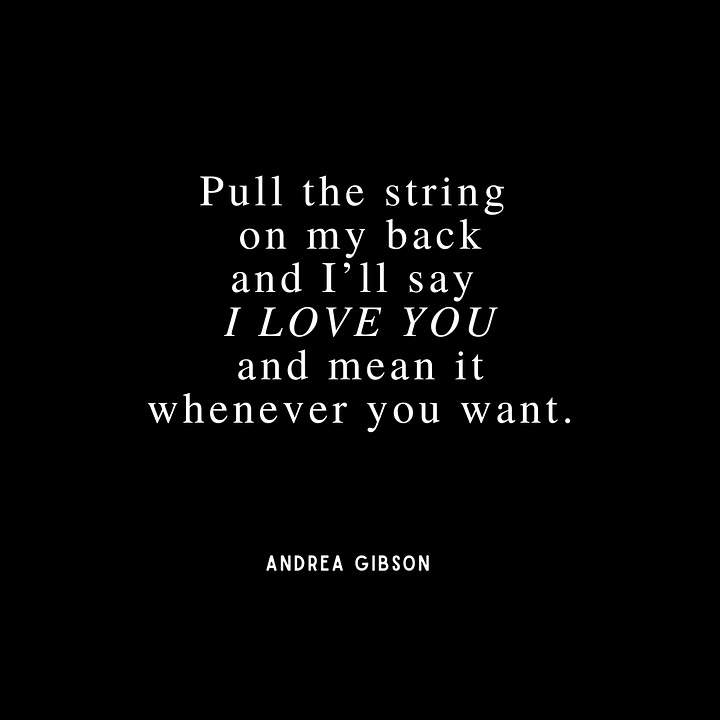



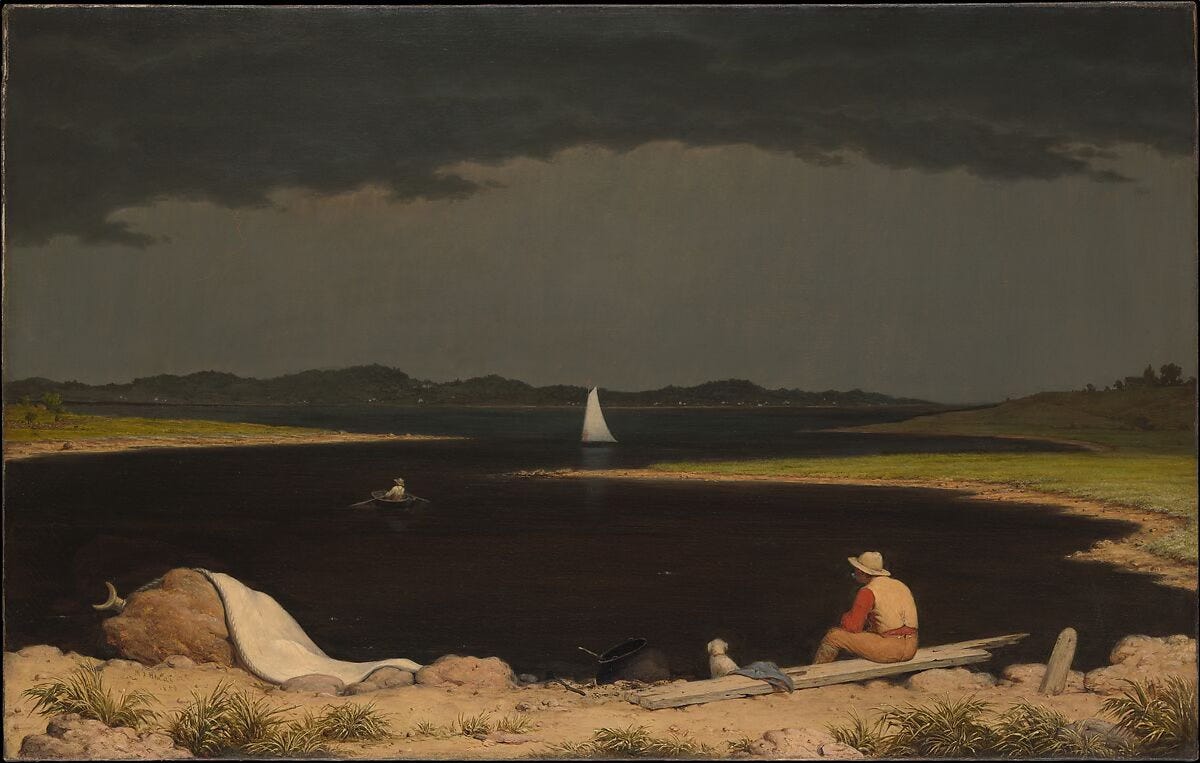
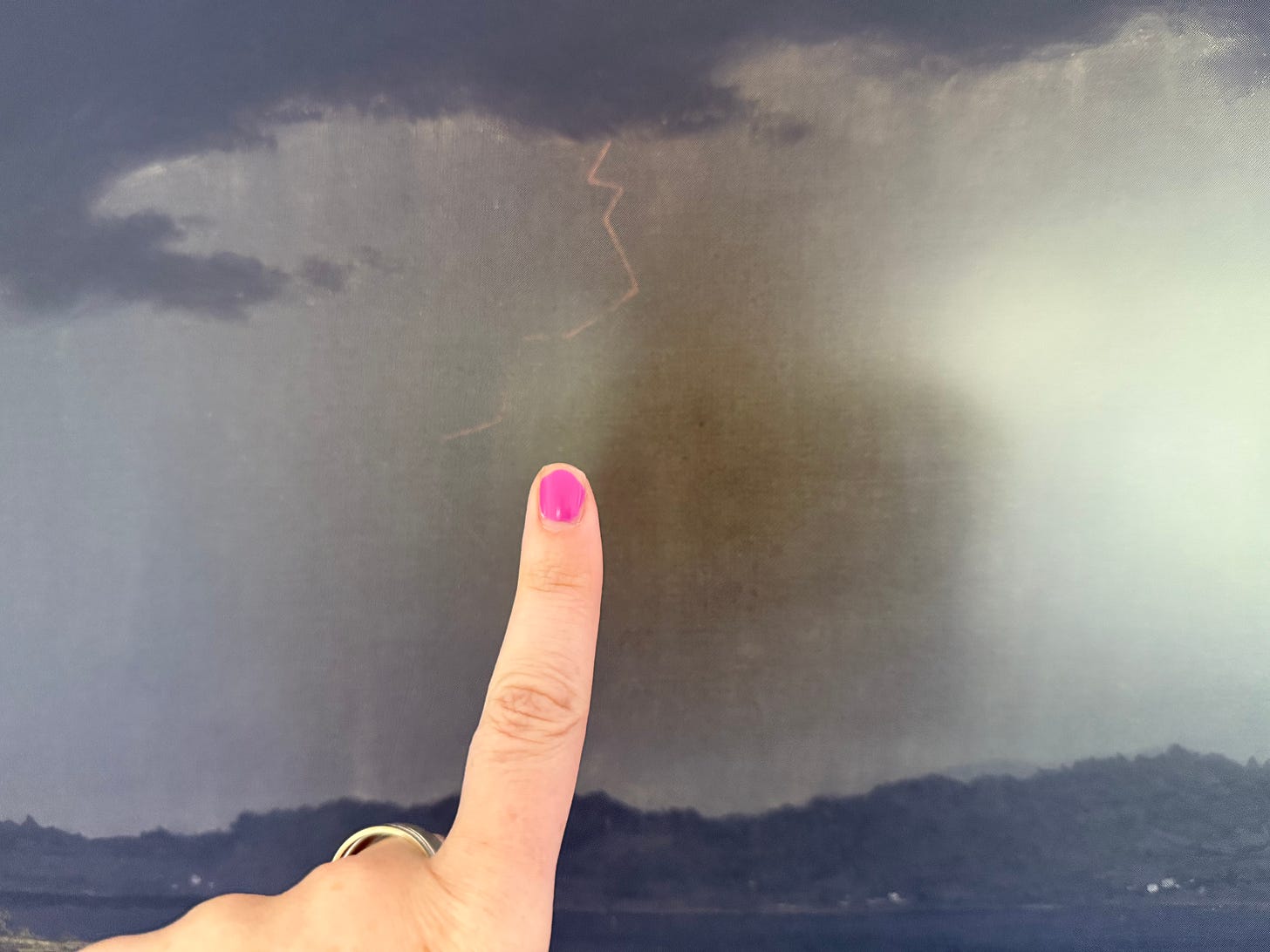
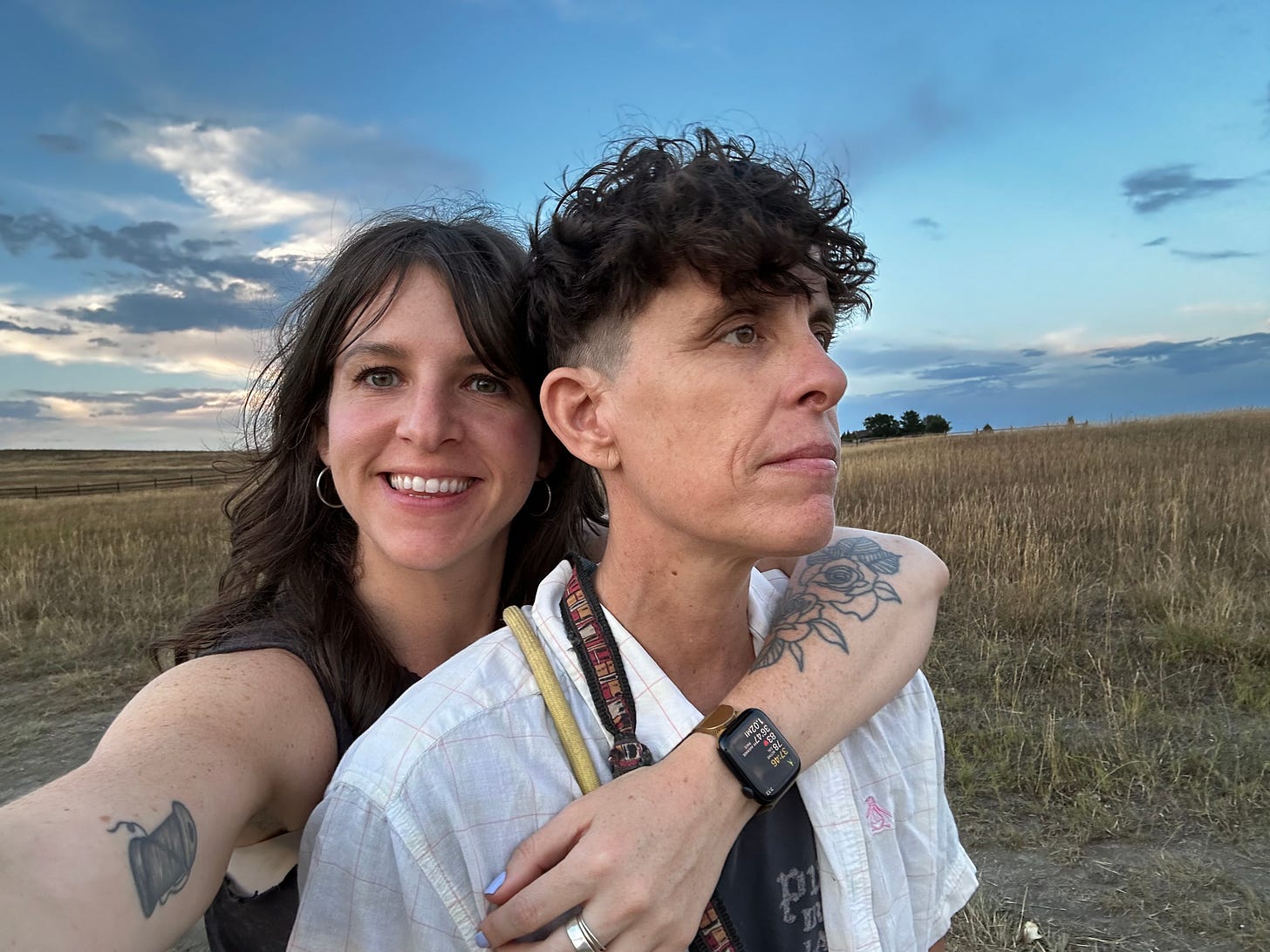

An undeniable sign! I love this, Megan. I gasped when you found the lightning.
Can we all share the visits we've received from beyond in the comments? Two of mine : after my mom's best friend died, the side of her couch he would always sit on inexplicably started to concave, like he was still sitting there. And after my Dad died - twice, my iPhone lit up with a notification I'd never seen before. "Check in with Dad", which prompted me to send him my Google maps location. My Dad LOVED to have my maps location, and I shared it with him only on special occasions.
Thank you for sharing your grief so honestly, Megan. I find it to be the best salve - how the grieving reach for one another.
What a stunningly graceful writer you are. And yes, it translated absolutely.